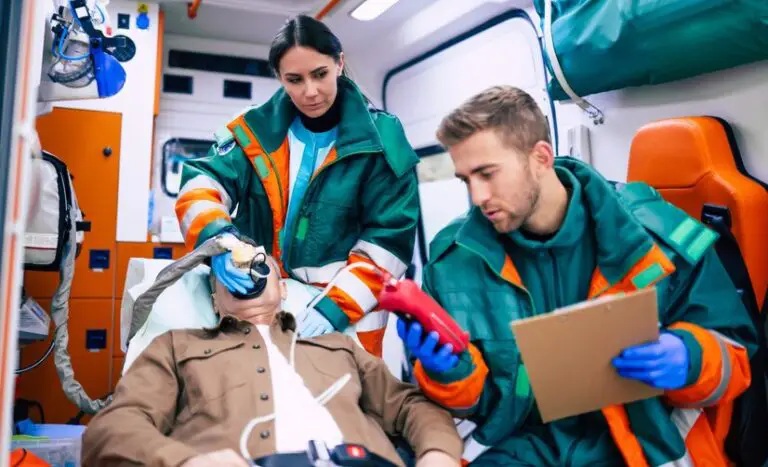How Environmental Factors and Relationship Behavior Influences on Good versus Unfaithful Boyfriends

Introduction: The behavior of boyfriends in relationships can be influenced by a variety of environmental factors, including family upbringing and peer influences. In this article, we explore how these environmental factors contribute to the likelihood of someone being a good boyfriend, characterized by traits like trustworthiness and commitment, versus an unfaithful boyfriend, who engages in behaviors like infidelity and dishonesty. Additionally, we present these factors in a comparative table for clarity.

Page Contents
- 1 How Environmental Factors and Relationship Behavior Influences on Good versus Unfaithful Boyfriends
- 2 Environmental factors can significantly influence the likelihood of someone being a good or unfaithful boyfriend.
- 3 Here are two key levels of environmental factors that can play a role:
- 4 Here are two key points on how early life and experiences shape our relationships:
- 5 Conclusion:
How Environmental Factors and Relationship Behavior Influences on Good versus Unfaithful Boyfriends
| Environmental Factors | Good Boyfriend | Unfaithful Boyfriend |
|---|---|---|
| 1. Family and Upbringing | ||
| Positive family environment with healthy relationship dynamics, supportive parents, and clear communication about values and expectations. Exposure to healthy role models for relationships. | Negative family environment characterized by instability, conflict, or dysfunctional relationship dynamics. Lack of positive role models, exposure to infidelity or unhealthy relationship dynamics, or experiences of neglect or abuse. | |
| 2. Peer Influences and Social Circles | ||
| Positive peer influences, such as friendships with individuals who value integrity, loyalty, and mutual respect in relationships. Friends who support healthy relationship choices and discourage infidelity. | Social circles that normalize or condone infidelity, promiscuity, or disrespectful behavior in relationships. Peer pressure, social acceptance of cheating, or exposure to friends who engage in infidelity. |

Environmental factors can significantly influence the likelihood of someone being a good or unfaithful boyfriend.
Here are two key levels of environmental factors that can play a role:

- Family and Upbringing:
- Good Boyfriend: A positive family environment with healthy role models for relationships, supportive and loving parents, and clear communication about values and expectations can contribute to the development of qualities like empathy, trustworthiness, and commitment. A good boyfriend may have grown up in an environment where he learned the importance of respect, communication, and fidelity in relationships.
- Unfaithful Boyfriend: Conversely, an upbringing characterized by instability, conflict, or dysfunctional relationship dynamics within the family can contribute to the development of negative relationship patterns. A lack of positive role models, exposure to infidelity or unhealthy relationship dynamics, or experiences of neglect or abuse may increase the likelihood of someone becoming unfaithful in relationships.
- Peer Influences and Social Circles:
- Good Boyfriend: Positive peer influences, such as friendships with individuals who value integrity, loyalty, and mutual respect in relationships, can reinforce positive relationship behaviors and attitudes. Having friends who support healthy relationship choices and discourage infidelity can contribute to the development of a good boyfriend who prioritizes honesty, communication, and commitment.
- Unfaithful Boyfriend: On the other hand, social circles that normalize or condone infidelity, promiscuity, or disrespectful behavior in relationships can influence someone to engage in similar behaviors. Peer pressure, social acceptance of cheating, or exposure to friends who engage in infidelity may contribute to someone becoming an unfaithful boyfriend, especially if they lack strong personal values or moral convictions.
Overall, while individual factors such as personality traits and personal values play a significant role in shaping someone’s behavior in relationships, environmental influences, including family upbringing and peer dynamics, can also have a profound impact on whether someone becomes a good or unfaithful boyfriend.
Here are two key points on how early life and experiences shape our relationships:
- Attachment Style Development:
- Early experiences with caregivers, typically during infancy and early childhood, play a crucial role in shaping our attachment styles.
- Secure attachment, characterized by consistent and responsive caregiving, lays the foundation for healthy relationship patterns, including trust, intimacy, and effective communication.
- Insecure attachment styles, such as anxious-preoccupied, dismissive-avoidant, and fearful-avoidant, may develop in response to inconsistent, neglectful, or abusive caregiving, leading to difficulties in forming and maintaining secure relationships.
- Internal Working Models:
- Our early experiences with caregivers form internal working models, or mental representations, of relationships and attachment.
- These internal working models influence our beliefs, expectations, and behaviors in future relationships, serving as a lens through which we interpret and respond to interpersonal interactions.
- Positive early experiences with caregivers contribute to the development of secure internal working models, fostering beliefs in our own self-worth, trust in others, and confidence in our ability to form and maintain healthy relationships. Conversely, negative early experiences may lead to the formation of insecure internal working models, characterized by mistrust, fear of rejection, or difficulty with intimacy and vulnerability in relationships.
Overall, early life and experiences play a foundational role in shaping our attachment styles, internal working models, and relational patterns, influencing how we approach and navigate relationships throughout our lives. By understanding the impact of early experiences on our relationship behaviors and beliefs, we can cultivate self-awareness, heal from past wounds, and foster healthier, more fulfilling connections with others.
Conclusion:
Environmental factors play a significant role in shaping the behavior of boyfriends in relationships, influencing whether they exhibit traits associated with being a good or unfaithful partner. The Positive family environments and supportive peer influences can contribute to the development of qualities like trustworthiness, commitment, and respect for partners. Conversely, negative family dynamics and social circles that normalize infidelity or unhealthy relationship behaviors can increase the likelihood of someone becoming unfaithful in relationships. By understanding the impact of environmental factors on relationship behavior, individuals can cultivate environments that support healthy, fulfilling relationships built on trust, communication, and mutual respect.







